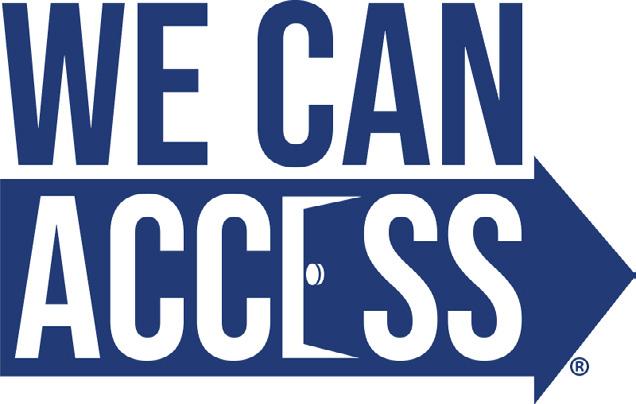
2 minute read
OPENING THE DOOR TO A MORE ACCESSIBLE WORLD
WeCanAccess is a community social enterprise built on creating and enabling a positive social shift towards “accessible and inclusive urban space” for people with disabilities.
Accessibility is vital from both an economic and social standpoint. Every day we need to get clean, get dressed, move around, make and eat food, and communicate. To make these things accessible we choose certain products that suit us but we all have access issues at some point in our lives or we are likely to care for someone else who has. Maybe you are too short to ever reach items on the upper shelves in the supermarket, maybe you can’t read this text if you misplace your glasses, or maybe you can’t get a job because you get too anxious in interviews. When your access to education, healthcare and employment is impaired because of a physical or attitudinal barrier, you are more likely to be dependent on others, live in poverty and have poor health.
Advertisement
Around 15% of the world’s population has a recognised disability but this figure does not count people who are not necessarily considered as having a disability but who do have access issues, like those mentioned above. The number of people with disabilities and additional needs is also growing due to improved healthcare and the impacts of ‘long COVID’. It is becoming increasingly clear that a social shift in attitudes is essential both socially and economically, a shift whereby inclusion and accessibility is the norm.
WeCanAccess strives to enable people to access the world physically, socially and economically by providing an online platform where people with access needs, their carers and professionals can share, discuss and trade. Their work focuses on two core aims:
1. To create a social shift in attitudes by demonstrating that accessibility and inclusion are vital for a more economically andsocially sustainable future.
2. Improve the health and wellbeing of the community by enabling people to come together to share lived experiences and create opportunities foreconomic and social interaction.
When you make things accessible for one person, you are likely making life more accessible for all. For example; the wheelchair user, the child with their leg in a cast, the pensioner with arthritic knees, and the parent with a buggy are all from very different demographic cohorts and only one, maybe two of those people would be considered ‘disabled’. However, all have the same requirement for stairless access. It is also important to remember that accessibility and inclusion are not just about ramps and disabled parking spaces. Accessibility is about ensuring that people can learn, access healthcare and the jobs market. Inclusion is about being part of the community and being able to make a contribution.
Attitudes to people with disabilities and access issues are influenced by society and culture. By showing how good accessibility facilitates better inclusion and better economic and social outcomes, we can promote good practice without challenging or threatening people’s way of life. WeCanAccess is building a community to create and enable that social shift by sharing stories, experiences and new ways of approaching activities.











